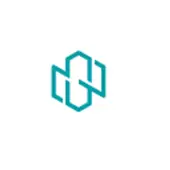CFDs are complex instruments and come with a high risk of losing money rapidly due to leverage. Between 51% and 89% of retail investor accounts lose money when trading CFDs. You should consider whether you understand how CFDs work and whether you can afford to take the high risk of losing your money.
Ways to trade natural gas
Traders can trade natural gas using several different financial instruments. Here are the most common ways to trade natural gas:
Contracts for Difference (CFD): These are agreements between traders and brokers that reflect the price movement of natural gas. CFDs enable traders to speculate on the price of an underlying asset without actually owning the physical commodity. The primary appeal of natural gas CFDs for traders is the the opportunity to benefit from both rising and falling price movements. Learn more by checking out our guide to CFD trading platforms.
Spot trades: Natural gas spot trades are settled instantaneously and operate independently of futures contracts. They directly reflect the current price of natural gas and exhibi a higher level of volatility than futures. This volatility often leads to complexities in deliveries, which is mirrored in the spot prices.
Futures contracts: These agreements allow traders to purchase or sell natural gas at a set price and specific future date.
Options: These are contracts granting traders the privilege, without obligation, to buy or sell natural gas at a predetermined price and future date. To profit from their trades, options traders must accurately predict the magnitude and timing of the movement in natural gas futures.
Exchange-Traded Funds (ETFs): These are publicly traded funds engineered to follow the price of an underlying asset, industry, or index. ETFs present a viable investment vehicle for natural gas.
Pros and Cons of Trading Natural Gas
Pros
- Natural gas is a commodity that boasts high trading volumes, making it an attractive option for traders looking to leverage their trades and capitalize on commodities with significant liquidity.
- Compared to coal and petroleum, natural gas is often perceived as a more eco-friendly alternative.
- When burned, natural gas produces fewer emissions than other fossil fuels, emitting only half the amount of carbon dioxide as coal and roughly one-third less than oil. Additionally, it releases lesser amounts of harmful chemicals such as nitrogen oxides and sulfur dioxide.
Cons
- Trading in natural gas can carry high risks due to the volatility and unpredictability of its prices. Factors ranging from irregular weather patterns to disruptions in gas supply can dramatically influence natural gas prices.
- As a non-renewable resource, natural gas will deplete over time.
- If not managed correctly, the extraction process of natural gas can pose significant environmental hazards.
Natural gas statistics
- According to the U.S. Energy Information Administration (EIA), natural gas is considered a primary source of energy. In 2021, natural gas made up 36% of the total U.S. primary energy production. U.S. dry natural gas production outpaced total U.S. natural gas consumption by approximately 10.8% in the same year.
- When it comes to natural gas production, the United States and Russia lead the pack. In 2021, the U.S. production of natural gas reached nearly 934 billion cubic meters, surpassing Russia's production by over 230 billion cubic meters.
- As of the start of 2020, the estimated total of world's proven reserves of natural gas stood at around 7,257 trillion cubic feet (Tcf). By 2021, this estimate was slightly lower, at 6,822.66 trillion cubic feet.

What forex broker is best for trading natural gas?
IG is the best broker for trading natural gas. IG provides access to 19537 tradeable symbols and 100 different forex pairs, compared to the median number of 982 symbols and an average of 66 available forex pairs across the 60+ brokers reviewed on BrokerNotes.
Check out a gallery of screenshots from IG's trading platforms, taken by our research team during our product testing.
What affects the price of natural gas?
Natural gas can be a volatile trading commodity, and prices can be subject to large fluctuations. This volatility can present both opportunities and risks for traders. For example, colder-than-expected winter weather can drive up demand for natural gas for heating, potentially leading to price increases. On the other hand, a warmer-than-average winter or an increase in production can lead to oversupply and price drops.
In addition to its role as an energy source, natural gas also serves as a raw material in the manufacture of a variety of products, including fertilizers, plastics, and chemicals. This adds another layer of complexity to its role as a commodity, as changes in these industries can also impact natural gas prices.
Are there any trading strategies specific for natural gas?
Multiple trading strategies can be utilized when dealing with natural gas. These include day trading, range trading, and breakout trading, among others. Fundamental analysis is another vital strategy, focusing on supply and demand dynamics as well as broader macroeconomic factors that could influence the price of natural gas. Contracts for Difference (CFDs), a type of derivative instrument, offer an alternative method for trading in natural gas. CFDs provide traders with the opportunity to speculate on the price of natural gas and shares related to this commodity.
What time does natural gas trading start?
The trading hours for natural gas can vary, contingent upon the specific exchange. For instance, the NYMEX Henry Hub Natural Gas futures (NG), a globally recognized benchmark for Natural Gas pricing, operates from 5:00pm to 4:00pm CT from Sunday through Friday, with a daily 60-minute pause commencing at 4:00pm CT.
Alternatively, on the Multi Commodity Exchange (MCX), the trading window for natural gas is open from 9:00 a.m. to 11:30 p.m., covering all weekdays from Monday to Friday.
Alternative Commodities To Natural Gas
BrokerNotes.co 2026 Overall Rankings
To recap, here are our top forex brokers for 2026, sorted by Overall ranking.
Popular Forex Guides
More Forex Guides
Popular Forex Reviews
Methodology
At BrokerNotes.co, our data-driven online broker reviews are based on our extensive testing of brokers, platforms, products, technologies, and third-party trading tools. Our product testing extends to the quality and availability of educational content, market research resources, and the accessibility and capabilities of mobile platforms and trading apps. We also dive into each broker’s trading costs, such as VIP rebates, inactivity fees, custody fees, bid/ask spreads, and other fee-based data points.
Steven Hatzakis, an industry veteran with decades of experience in the forex market, leads the BrokerNotes research team. All BrokerNotes content is researched, fact-checked, and edited by the research team.
All websites and web-based platforms are tested using the latest version of the Google Chrome browser. Our Desktop PCs run Windows 11, and we use MacBook Pro laptops running the latest version of macOS to test trading on the go. We test mobile apps and products using iPhones running iOS 17 and Samsung devices running Android OS 14.
Note: The online brokers on our site provide the ability to trade forex in one or more ways, such as non-deliverable spot forex (i.e., rolling spot contracts), contracts for difference (CFD), or other derivatives such as futures. The availability of specific markets or features will depend on your country of residence and the broker's applicable brand or entity that services your account(s).
Forex Risk Disclaimer
There is a very high degree of risk involved in trading securities. With respect to margin-based foreign exchange trading, off-exchange derivatives, and cryptocurrencies, there is considerable exposure to risk, including but not limited to, leverage, creditworthiness, limited regulatory protection and market volatility that may substantially affect the price, or liquidity of a currency or related instrument. It should not be assumed that the methods, techniques, or indicators presented in these products will be profitable, or that they will not result in losses. Learn more about foreign exchange risk.
About the Editorial Team
Founded in 2014 and acquired in 2021, BrokerNotes.co provides unbiased forex broker reviews and ratings to help traders and investors find the best broker for their needs. With over 60 brokers reviewed, our editorial team has published thousands of words of research to help our readers make informed choices.
Steven Hatzakis is the Global Director of Online Broker Research for BrokerNotes.co and ForexBrokers.com. Steven previously served as an Editor for Finance Magnates, where he authored over 1,000 published articles about the online finance industry. A forex industry expert and an active fintech and crypto researcher, Steven advises blockchain companies at the board level and holds a Series III license in the U.S. as a Commodity Trading Advisor (CTA).
Joey Shadeck is the Content Strategist and Research Analyst for BrokerNotes.co and ForexBrokers.com. He holds dual degrees in Finance and Marketing from Oakland University, and has been an active trader and investor for close to ten years. An industry veteran, Joey obtains and verifies data, conducts research, and analyzes and validates our content.
John Bringans is the Managing Editor of BrokerNotes.co and ForexBrokers.com. An experienced media professional, John has close to a decade of editorial experience with a background that includes key leadership roles at global newsroom outlets. He holds a Bachelor’s Degree in English Literature from San Francisco State University, and conducts research on forex and the financial services industry while assisting in the production of content.




















 Capital.com
Capital.com
 Swissquote
Swissquote
 OANDA
OANDA
 AvaTrade
AvaTrade
 Plus500
Plus500
 FXCM
FXCM
 Pepperstone
Pepperstone
 XM Group
XM Group
 Admirals
Admirals
 FP Markets
FP Markets
 IC Markets
IC Markets
 FxPro
FxPro
 Tickmill
Tickmill
 Markets.com
Markets.com
 BlackBull Markets
BlackBull Markets
 Fineco
Fineco
 Vantage
Vantage
 ThinkMarkets
ThinkMarkets
 DooPrime
DooPrime
 HYCM (Henyep Capital Markets)
HYCM (Henyep Capital Markets)
 HFM
HFM
 Trading 212
Trading 212
 Questrade
Questrade
 ActivTrades
ActivTrades
 Trade Nation
Trade Nation
 Moneta Markets
Moneta Markets
 BDSwiss
BDSwiss
 TMGM
TMGM
 Eightcap
Eightcap
 Spreadex
Spreadex
 MultiBank
MultiBank
 ACY Securities
ACY Securities
 easyMarkets
easyMarkets
 Exness
Exness
 VT Markets
VT Markets
 IFC Markets
IFC Markets
 RoboForex
RoboForex
 Octa
Octa
 IronFX
IronFX
 Axi
Axi
 Earn
Earn
 ATFX
ATFX
 iFOREX
iFOREX
 FXPrimus
FXPrimus
 FXOpen
FXOpen
 Markets4you
Markets4you
 GBE brokers
GBE brokers
 Alpari
Alpari
 FXGT.com
FXGT.com
 Xtrade
Xtrade
 Libertex (Forex Club)
Libertex (Forex Club)
 TopFX
TopFX
 LegacyFX
LegacyFX


